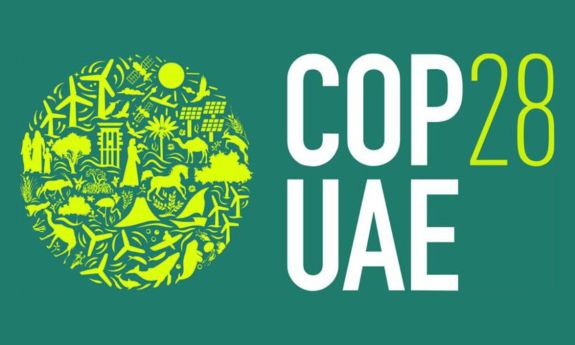Students and Faculty Attending World Climate Conference COP28 in Dubai

A small delegation of Duke experts and students will attend this year’s United Nations Climate Change Conference, also known as COP, which takes place in Dubai, United Arab Emirates from Nov. 30 to Dec. 12.
This year’s event is the 28th Conference of Parties (COP28). The “parties” are the 197 countries that ratified the United Nations Framework Convention on Climate Change (UNFCCC) in 1992.
COP serves as an annual opportunity for countries to negotiate agreements to advance climate action. For example, the historic Paris Agreement on reduction of greenhouse gases emerged from COP21 in Paris. COP also serves as an annual opportunity for Duke students and faculty to see global diplomacy in action.
“COP has increasingly become an exercise in evaluating our climate progress – and lack thereof, summoning diplomatic peer pressure to increase ambition and find new pathways to progress,” said Jackson Ewing, director of energy and climate policy at the Nicholas Institute of Energy, Environment & Sustainability. He is bringing along students in “U.N. Climate Change Negotiations Practicum” (ENVIRON 592/PUBPOL 592), a hands-on course that explores international climate change negotiations and climate policy.
The Duke students will work with various organizations to track climate mobility, observe and report on negotiations and work towards better understanding the various interagency collaborations with policymakers.
“This will be particularly true this year in Dubai, where the first Global Stocktake puts in stark relief how far we are from an acceptable climate trajectory,” Ewing said.
The Stocktake is an inventory of current and future progress since the Paris Agreement. This first-ever effort enables countries to evaluate progress on a worldwide scale, identifying shortfalls and providing a structure for urgent shifts in climate policy.
Also new this year will be a themed day on human health.
“It is hard to believe, but this year is the first that COP will host a designated themed day for health,” said Ashley Ward, director of the Heat Policy Innovation Hub at the Nicholas Institute.
Ward said she looks forward to seeing how the topic of health is “integrated into the broader discussions at COP, particularly on the Global Goal on Adaptation to determine how we define, monitor and evaluate progress toward this goal.”
“It has taken 28 years for the Climate COP to establish a dedicated health day to understand and discuss the linkages between climate change and health,” said William Pan, an associate professor of Global Environmental Health who studies such linkages. “The 1992 Rio Declaration on Environment and Development gave birth to the Climate COP, stating in the first principle that ‘humans are entitled to a healthy and productive life in harmony with nature.’ ”
In addition to formal negotiations among world leaders, COP includes events that foster collaboration on climate action among government officials, leaders from the private and non-profit sectors, climate experts, environmental activists and observers from around the world.
Led by Ewing, law professor Jonathan Wiener, and graduate students Gabriela Nagle Alverio and Ina Liao, the student delegation from Duke is a Bass Connections-affiliated course that engages students in independent coursework, classroom discussions and guest lectures throughout the semester, all in preparation for the opportunity to attend the annual UNFCCC COP.